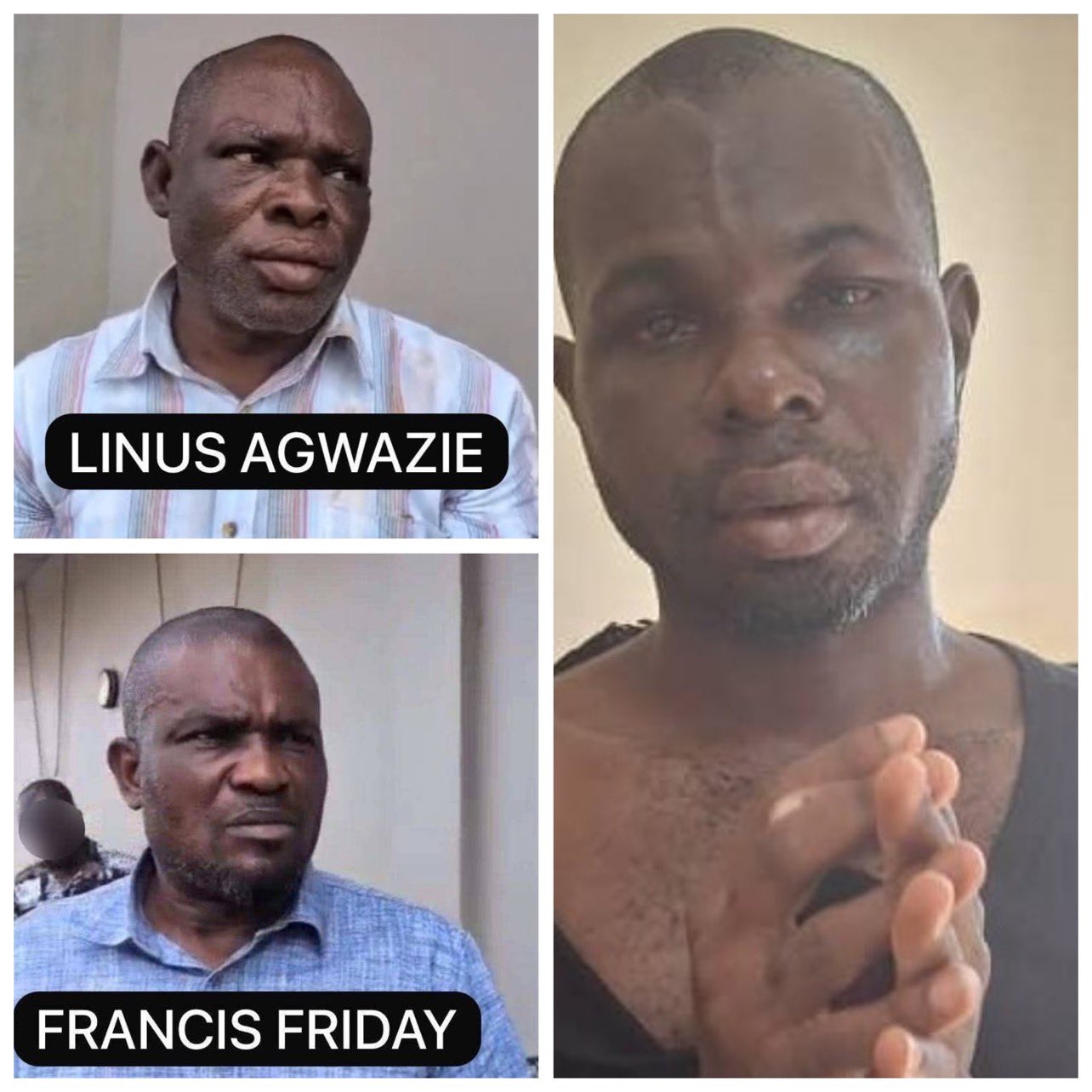
Ghanaian Court Hands Three Nigerians a Combined 96-Year Jail Term Over Vehicle Theft Spree in Kumasi

In a landmark ruling that has gripped both Ghana and Nigeria, the Atasemanso Circuit Court in Kumasi has sentenced three Nigerian nationals to a combined 96 years in prison for their roles in a series of vehicle thefts that plagued the Kumasi Metropolis. The convicts, identified as Francis Friday, Linus Agwazie, and Russell Ekenze, were found guilty of orchestrating a string of criminal operations that involved stealing cars from unsuspecting victims and attempting to sell them within Ghana and across borders. The judgment has sparked heated conversations about cross-border crime, community safety, and the growing concerns over the activities of foreign nationals involved in organized criminal syndicates.
According to court records and testimony presented during the proceedings, the three men had been on the radar of security agencies for months as reports of car theft surged in Kumasi and surrounding areas. Victims recounted how their vehicles disappeared in the dead of night or were taken during carefully coordinated thefts that suggested the involvement of a well-organized group. Investigators traced several of these thefts back to the trio, uncovering a trail of evidence that included stolen cars, duplicate keys, and links to buyers willing to purchase the stolen vehicles at reduced prices. Their operation was described as calculated, with each member playing a distinct role, from targeting and surveilling vehicles to executing the thefts and arranging for quick sales.
The prosecution argued that the crimes were not isolated incidents but part of a broader pattern of criminal activity that had terrorized car owners in Kumasi for months. The state presented damning evidence, including eyewitness accounts, police reports, and confessions that tied the convicts directly to multiple thefts. It was revealed that the men were not first-time offenders but had been involved in similar activities in the past, raising questions about how they managed to evade capture until now. The court, presided over by Judge Fred Obeng, stated that the scale of their operation and the trauma inflicted on victims warranted severe punishment to serve as a deterrent to others.
Delivering the verdict, the judge emphasized the importance of protecting the public from criminals who prey on innocent citizens and undermine social trust. He described the actions of the convicts as a blatant disregard for the law and a threat to the safety of society. Each man received lengthy jail terms that collectively added up to 96 years, with the breakdown reflecting their individual levels of involvement in the thefts. The heavy sentences were met with mixed reactions from those present in court, with some praising the decision as a bold step toward tackling crime, while others expressed concern over the growing number of foreign nationals being convicted for serious offenses in Ghana.
The sentencing has reignited debates about immigration, law enforcement, and community security. Some Ghanaians argue that the influx of foreigners, particularly from neighboring West African countries, has contributed to the rise in certain types of crimes, including vehicle theft, drug trafficking, and fraud. While officials have cautioned against blanket stigmatization of foreign nationals, there is increasing pressure on security agencies to tighten border controls and implement stricter monitoring of immigrants. The case of Francis Friday, Linus Agwazie, and Russell Ekenze has become emblematic of this broader conversation, with commentators stressing the need for regional cooperation between Ghana and Nigeria in tackling cross-border crime.
For many victims of the thefts, the sentencing brought a sense of relief but also lingering frustration. Several car owners who testified during the trial spoke about the financial and emotional toll of losing their vehicles, many of which represented years of hard work and investment. Some said they had lost faith in ever recovering their cars, while others described the trauma of being left stranded and vulnerable after the thefts occurred. The conviction of the trio was seen as a form of justice, but it also highlighted the challenges of ensuring that stolen vehicles are tracked, recovered, and returned to their rightful owners.
In the streets of Kumasi, the news of the sentencing spread quickly, sparking discussions in markets, transport hubs, and community gatherings. Many residents expressed relief that the notorious syndicate had finally been dismantled, while others used the occasion to call for better policing and community vigilance. Local leaders urged citizens to remain alert and report suspicious activities, stressing that the fight against crime required collective effort. Security experts also weighed in, noting that vehicle theft rings often operate with sophisticated methods that make detection difficult, including the use of technology to bypass security systems and connections with corrupt insiders who provide information about targets.
Nigerian authorities, for their part, are yet to issue an official statement on the sentencing of their citizens, but the case is expected to attract attention from Abuja given the growing concerns about the reputation of Nigerians abroad. While thousands of Nigerians in Ghana are engaged in legitimate businesses and contribute positively to society, cases like this risk fueling stereotypes and tensions between communities. Analysts say it is crucial for Nigerian authorities to work closely with their Ghanaian counterparts in not only addressing crime but also ensuring that the actions of a few individuals do not tarnish the image of an entire nation.
Legal observers have praised the Atasemanso Circuit Court for delivering a decisive judgment, arguing that the severity of the sentence sends a clear message that Ghana will not tolerate criminal activity, regardless of the nationality of the offenders. However, human rights advocates have also raised concerns about prison conditions and the long-term implications of such lengthy sentences, suggesting that rehabilitation programs should complement punishment to reduce the chances of reoffending.
As the dust settles, the story of Francis Friday, Linus Agwazie, and Russell Ekenze remains a stark reminder of the dangers of organized crime and the devastating impact it can have on communities. Their 96-year combined sentence stands as both a punishment for their actions and a warning to others who may be tempted to follow a similar path. For the people of Kumasi, the case represents a hard-fought victory in the struggle to protect their livelihoods and a renewed call for vigilance, cooperation, and stronger institutions to ensure that justice and security are upheld in the face of growing threats.


